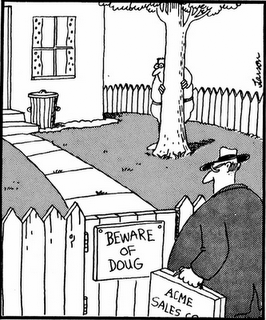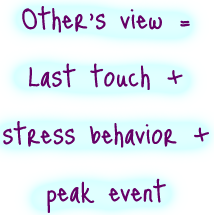 Pet sitting for friends is like being a grandparent – spoil them rotten and then send them home to be disciplined by their owners. We get great joy out of being the spoiler with Cassie, my brother-in-law Brian’s beautiful dog.
Pet sitting for friends is like being a grandparent – spoil them rotten and then send them home to be disciplined by their owners. We get great joy out of being the spoiler with Cassie, my brother-in-law Brian’s beautiful dog.
Rescued later in life, Cassie was clearly abused in her younger years. She is extremely skittish whenever someone moves near her, having her head down in fear for any human contact other than Brian.
Cassie has no reason to behave like this any longer. Brian is a wonderful, loving caretaker and we are equally loving with her every time she comes over. Yet Cassie is still scared after many, many years of interaction with us.
Cassie is afraid because she knows what a human is capable of doing. She has experienced something that she cannot forget – something stuck. It may have been a series of events or one really bad moment – we don’t know.
We humans are a lot like that as well. We have something that sticks with others – sometimes it is good, other times not so much. So when it comes to other’s view of us, what sticks?
There are two bodies of research that show how we store and recall information about our associates. In the first, it was revealed that people usually summarize a person by the last thing they said or did as well as some peak moment or event. This event might have been good or bad, but it sticks out and comes back quickly.
In the second study researchers discovered that our internal view of ourselves is characterized by how we react in non-stressful times while others overall view comes from our most stressful times. If you behave much differently under stress then you will likely have a different view of yourself than does your friend.
 This means that it is very possible that another person’s view of you is formed by a combination of your actions under stress, some peak defining moment, either good or bad, and the last encounter they had with you. So unless you are a better person under stress and have had some great moment that sticks out you better hope your last encounter with them was a good one.
This means that it is very possible that another person’s view of you is formed by a combination of your actions under stress, some peak defining moment, either good or bad, and the last encounter they had with you. So unless you are a better person under stress and have had some great moment that sticks out you better hope your last encounter with them was a good one.
The good news is that this phenomena is most dominant in relationships that are aren’t close friendships. Our best friends know the whole picture and understand our flaws and still love us. Unfortunately most of our relationships in the world are not like that.
As a leader, you may be forever judged by the one day that you took out your frustration on the team or lead the team during the death cycle release of your product. It may be the one completely inappropriate slip of the tongue. You may get chances to recover – or you may not. Bottom line is that one event may demonstrate what you are capable of doing and like Cassie forever cloud their view.
A friend of mine is an absolutely wonderful person. He is always looking to improve himself, extremely trustworthy, has a great sense of humor and is a great family man. Unfortunately he was thrust into a project that was incredibly stressful. He and his team had been asked to do the impossible for a very long time. He was not himself.
Unfortunately his team will likely never know him by the man he and I know him to be but rather the boss that on one day had that eventful meting where a simple phrase he said will forever be tagged to him by those on his team – even after 10 years have passed.
 The key is not to be afraid of this – you can’t change the physiology of recall. Rather, understand this happens and by knowing that you have one leg up.
The key is not to be afraid of this – you can’t change the physiology of recall. Rather, understand this happens and by knowing that you have one leg up.
Be brave – ask those near you if you are different under stress. Have them quickly recall an event from your past – see what comes up. I was quite surprised what came back.
It sounds rather mechanical but if your peak event was not a good one you are going to have to have try and cultivate one of equal significance in the other direction.
If you are under constant pressure, realize this is the view that will follow you. You may not be able to relieve the pressure, but you have full control over how you respond to it. As Chuck Swindoll once said.
Your reaction to stressful situations, your reaction to a peak event, and your last encounter will stick. You have 90% control over that.
If you want to get a view of how you think differently under stress versus non-stressful conditions, consider taking the Herman Brain Dominance Indicator. This was very enlightening for me and several of my colleagues.






